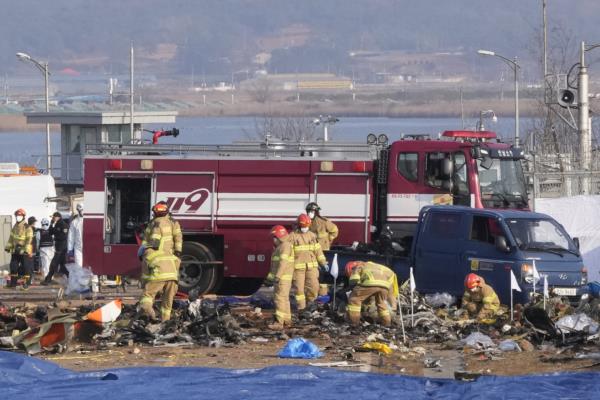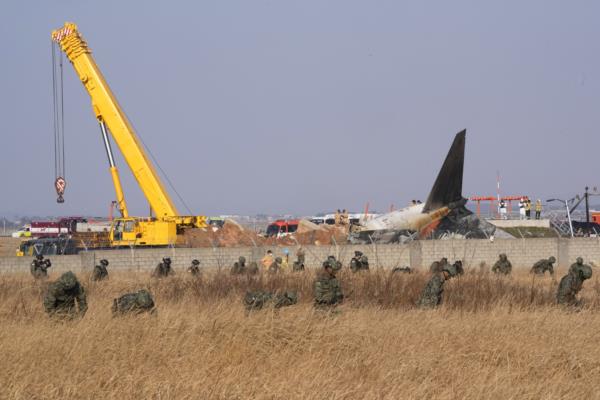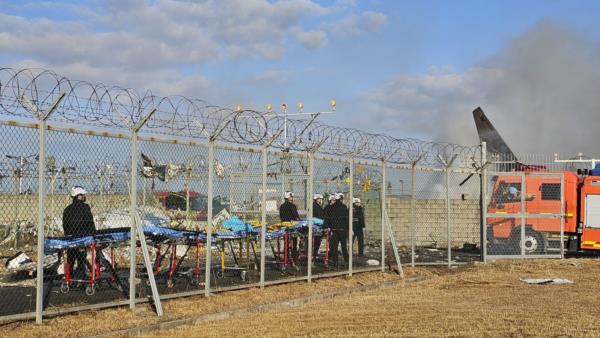
A devastating air disaster unfolded in South Korea on Sunday as a passenger jet crash-landed at an airport, resulting in one of the deadliest incidents in the nation's aviation history. The Boeing 737-800 jet, operated by Jeju Air, was arriving from Bangkok when it overshot the runway at the airport located 290 kilometers south of Seoul. Tragically, 179 out of the 181 passengers and crew onboard lost their lives in the crash, leaving only two survivors.
Preliminary investigations suggest that the pilot issued a distress signal just before the plane skidded off the runway and collided with a barrier, causing a massive fire that engulfed the aircraft. The plane's front landing gear was reportedly not deployed during the landing attempt. The government has declared the crash site in Muan a special disaster zone as authorities work to determine the cause of the tragedy.
Efforts are underway to analyze the flight data and cockpit voice recorders retrieved from the plane's black box, which could provide crucial insights into the sequence of events leading up to the crash. While the exact cause is yet to be determined, officials are exploring various possibilities, including the potential of a bird strike as the aircraft was warned about the risk shortly before landing.
























The global community has expressed solidarity with South Korea in the wake of the tragedy. Leaders from around the world, including Thailand, the Vatican, Japan, and Ukraine, have extended their condolences to the victims and their families. Meanwhile, within South Korea, the government has announced a weeklong national mourning period to honor the lives lost in the accident.
As the nation grapples with this heartbreaking incident, authorities are focused on providing support to the affected families and conducting a thorough investigation to shed light on the circumstances surrounding the crash. The tragic loss of lives has deeply impacted the country, prompting an outpouring of grief and calls for swift action to prevent such disasters in the future.







